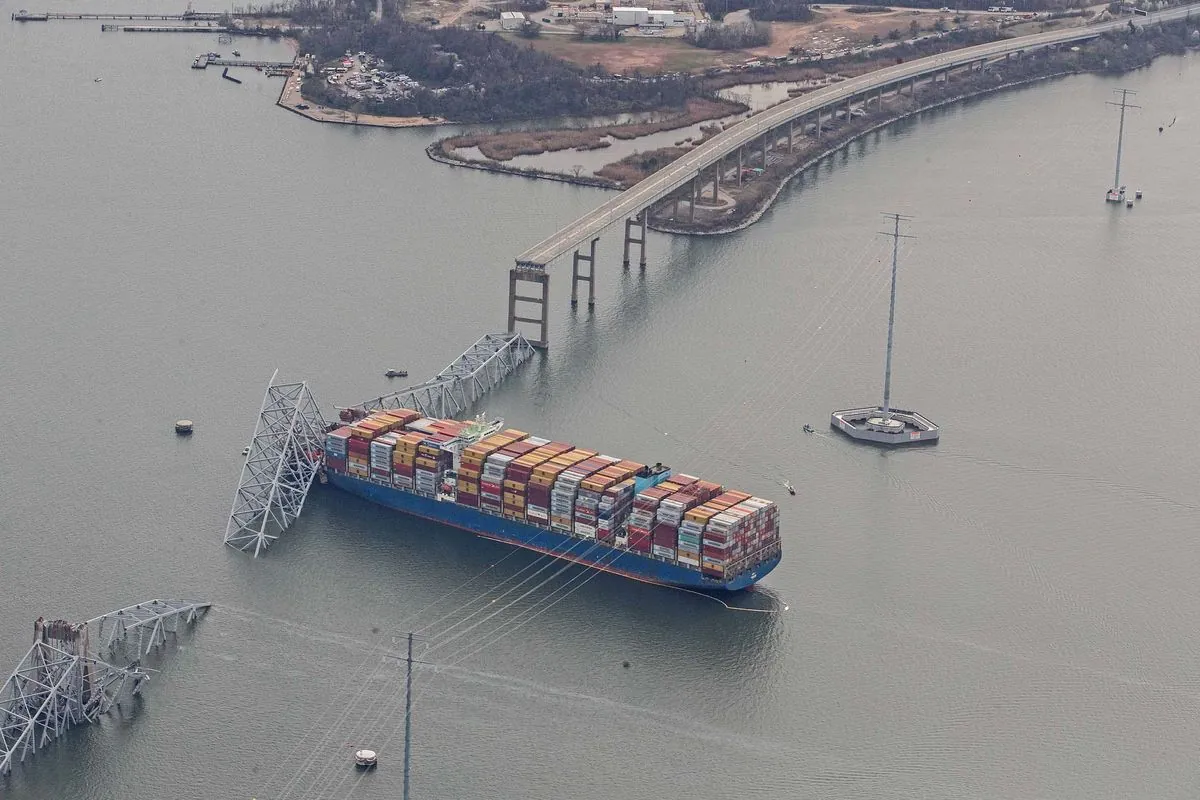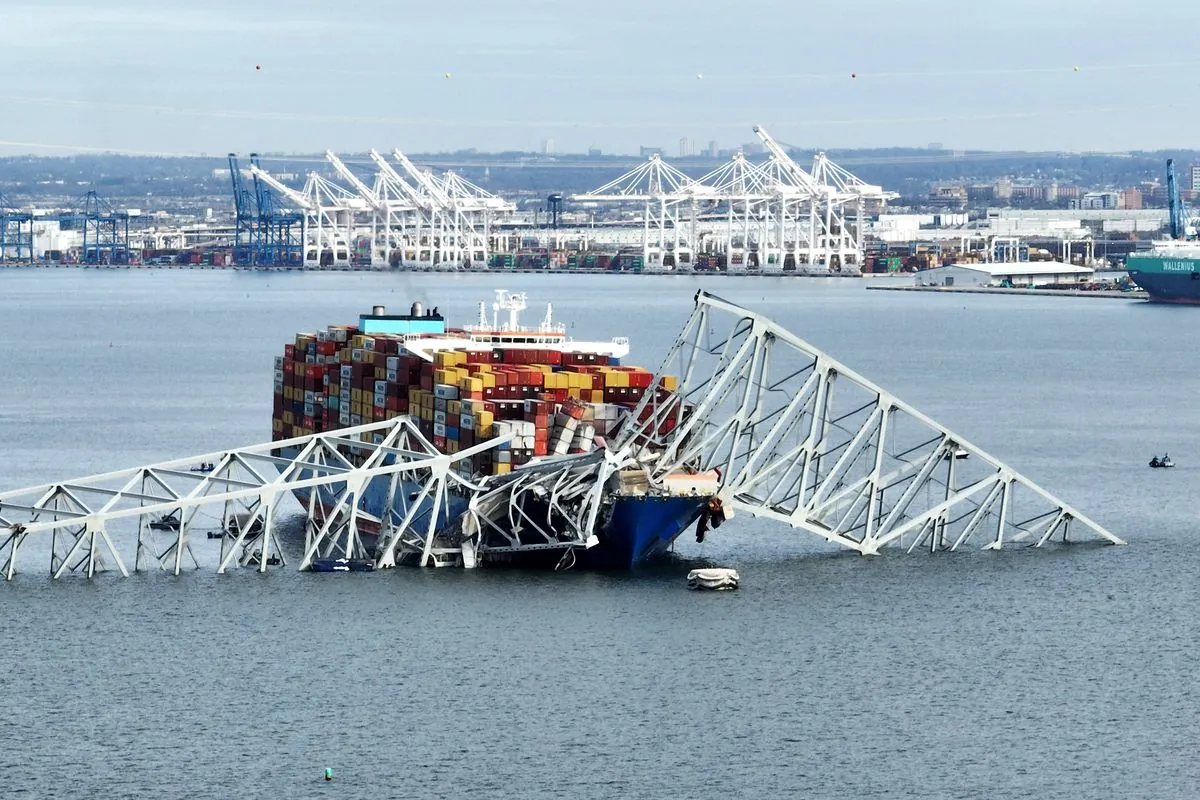DOJ Sues Ship Owner for $100M Over Baltimore Bridge Collapse
U.S. Justice Department files lawsuit against cargo ship owner and manager for Baltimore bridge collapse, seeking to recover over $100 million in cleanup costs. Lawsuit alleges negligence in ship maintenance.

The U.S. Justice Department has initiated legal action against the owner and manager of the cargo ship Dali, which was involved in the Baltimore bridge collapse six months ago. The lawsuit, filed in Maryland, aims to recover more than $100 million spent on debris removal and port reopening efforts.
The legal claim alleges that Grace Ocean Private Ltd. and Synergy Marine Group, both based in Singapore, failed to properly maintain the vessel's electrical and mechanical systems. This negligence reportedly led to a power loss, causing the ship to veer off course and collide with a support column of the Francis Scott Key Bridge in March 2024.

The incident resulted in the tragic loss of six road workers' lives and caused significant disruption to commercial shipping through the Port of Baltimore. The channel was fully reopened in June 2024, three months after the collapse.
Attorney General Merrick Garland stated, "The Justice Department is working to ensure that the costs of clearing the channel and reopening the Port of Baltimore are borne by the companies that caused the crash, not by the American taxpayer."
The Francis Scott Key Bridge, named after the author of the U.S. national anthem, was a crucial 1.6-mile-long steel arch bridge opened in 1977. Its collapse highlighted the vulnerability of aging infrastructure in the United States and sparked nationwide discussions about bridge safety and inspection protocols.
Chetan Patil, the acting deputy assistant attorney general, emphasized the severity of the situation: "This accident happened because of the careless and grossly negligent decisions made by Grace Ocean and Synergy, who recklessly chose to send an unseaworthy vessel to navigate a critical waterway and ignored the risks to American lives and the nation's infrastructure."
The Port of Baltimore, one of the largest seaports on the East Coast, handles over 10 million tons of cargo annually and supports over 15,000 direct jobs. The economic impact of the bridge collapse extended far beyond Baltimore, affecting regional supply chains and highlighting the port's significance to the U.S. economy.
The incident has also led to increased scrutiny of ship maintenance and safety procedures in ports across the country. Container ships like the Dali can be over 1,200 feet long and carry up to 24,000 containers, underscoring the potential risks associated with their operation in busy waterways.
Families of the victims, all Latino immigrants seeking better opportunities in the United States, have declared their intent to file claims against the ship's owner and manager. They are also calling for improved workplace protections, especially for immigrant workers.
This case is expected to become one of the most expensive marine casualty cases in history, with complex maritime law regulations coming into play regarding liability in shipping accidents.
As the legal proceedings unfold, the incident serves as a stark reminder of the importance of proper maintenance, safety protocols, and the potential consequences of negligence in maritime operations.


































